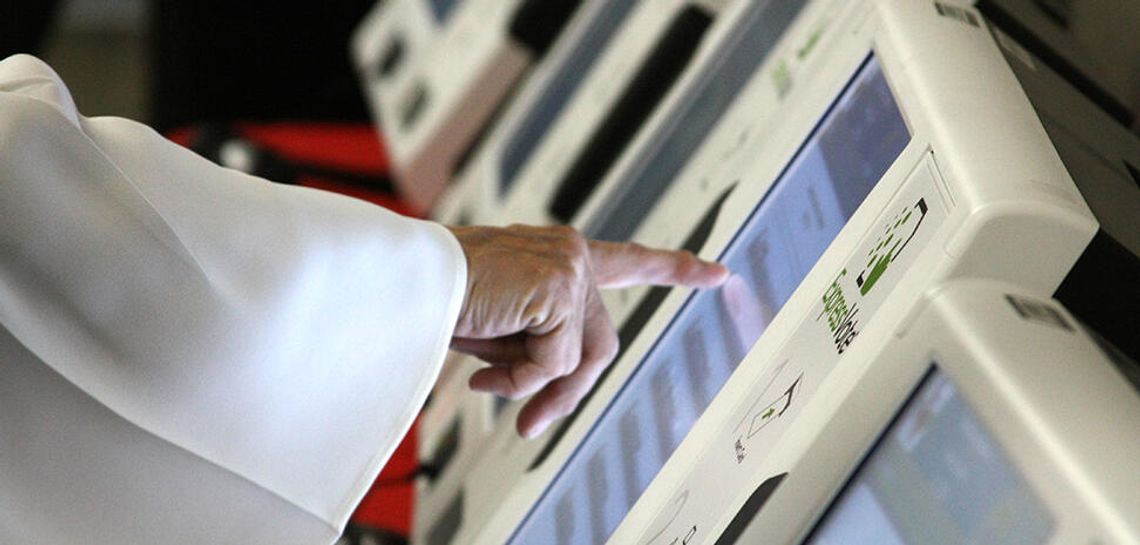County to consider hybrid voting machines
A statewide push for a paper trail at the ballot box has gained traction in Hays County as officials consider making the switch to a hybrid voting machine.
Residents got a first look at how these hybrid machines work and operate during an April 11 League of Women Voters event. For citizens who attended the event, the technology was refreshing and easy to manage.
Hybrid voting machines are typically split into two separate stations. At the first station, a resident casts a vote via a touch screen panel. Once the ballot is complete, a sheet of paper will print the ballot.
The voter will then double check his/her ballot before going to a second station, where the voter scans the paper ballot in a machine that counts the votes electronically. The paper is filed in a sealed box under the machine.
Voting officials said this system allows the votes to be filed in two separate locations. In May, Hays County Commissioners are expected to discuss the possibility of purchasing hybrid voting machines. Lon Shell, Hays County Pct. 3 Commissioner, said it might be time for the county to move on from its direct-recording electronic (DRE) machines, which have been in service for more than a decade.
“It’s still very preliminary, but we’re waiting for the Texas Legislature to finish out this session before we sit down and make a decision,” Shell said. “We know that the paper trail is important to people, so we will looking at our options.”
Neighboring jurisdictions like Travis County have recently transitioned to a hybrid system. In 2018, the Travis County Commissioners Court approved an $8 million contract for a new set of voting machines that include the paper trail.
Hays County Elections Administrator Jennifer Anderson said she has “every indication” that commissioners are willing to look at hybrid machines. Anderson said every county is different and some will still use DRE systems. Anderson cited Comal County’s recent purchase of new DRE machines.
“We want to make sure whatever system we choose will be to the benefit of the voter,” Shell said. “Preliminarily, yes, I like the idea of these hybrid systems. It adds a level of security that I think the voter would like.”
controversial Senate Bill 9 requires paper trail
Proposed legislation at the state level could impact how counties deal with elections in the future.
Part of Senate Bill (SB) 9, authored by State Senator Bryan Hughes (R-Mineola), would amend the Texas Election Code to require a paper audit trail for elections.
However, the bill also outlines a variety of procedures that would raise criminal penalties for violating election laws.
The bill has become controversial among election activists and government officials alike. Among these groups is the League of Women Voters of Texas, which is opposing the bill.
“It would bolster an ongoing campaign of selective criminal prosecutions aimed at deterring people from voting, particularly those from marginalized communities,” according to an LWV statement.










